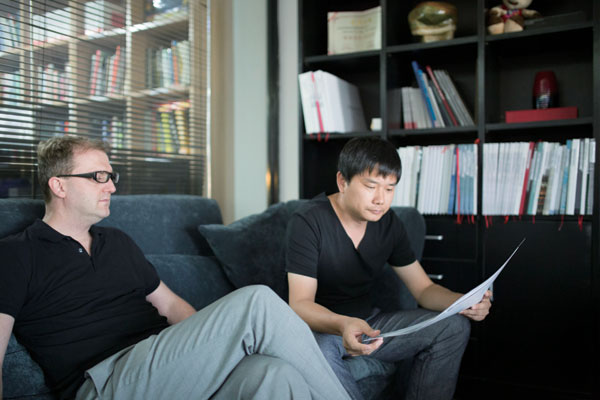 |
|
John van de Water and Jiang Xiaofei, co-leaders at NEXT architects Beijing. [Photos Provided to China Daily] |
"We don't want to build a Chinese knot just to build a shape. We aim to create a meaningful experience and place for people. That it looks like a knot is only the result of this ambition."
The bridge not only got international attention, it is so appreciated locally that it has given the firm 11 new projects of bridges, he says.
Van de Water co-founded NEXT architects in 1999 with three other recent graduates of architecture from Delft University of Technology in Netherlands. The four visited China the same year as part of a government-financed metropolis research that spanned across 26 cities in 14 countries.
The opportunities in China in the process of relating its culture and history to modernization struck van de Water just as much as the challenges.
In 2004, he moved to Beijing to set up the Beijing office for NEXT amid the construction boom bolstered by the 2008 Beijing Olympics.
As he explored the limits of Western architectural thinking in the China context in an initial period of incomprehension, confrontation and misunderstandings, he gradually realized the meaning behind the Chinese sayings like, "How do you know the fish are happy? You are not a fish" and started to open up to the unique Chinese features in his design process.
Although some consider it as compromise, van de Water tends to think it's adding another layer of meaning in order to make better architecture.
"I could never design pure Chinese architecture; any attempt would be meaningless. But isn't pure Western architecture for China meaningless as well? Chinese culture has to influence the way I design. First I thought this did not necessarily make our projects better. Now I think we're potentially adding layers of meaning to our designs."
Moreover, he has developed a feeling for how a building will be accepted in China, which rarely goes wrong these days.
|
|
|
|
|
|
|
|
